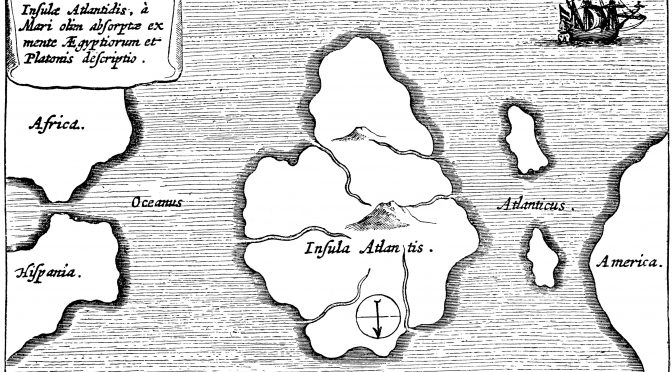Over the years, one of the points of pride I have in my work has been in the effort to do things that may seem almost pointless to others. The story of an agency policing the supernatural isn’t particularly new and there are certainly more well known examples even in the last couple of months, but I’ve always made an effort to look harder at the details. Anyone following the Alterpedia or Alterpedia Historia can see this pretty clearly. Where as some versions of the concept are willing to simply go “everything is exactly the same, there’s just magic here”, I tend to look harder at the idea of these two worlds colliding. Wouldn’t the existence of Vampires motivate the creation of a viable blood supply that doesn’t require armed conflict? If magic wands were genuinely a thing, what would prevent them from overwhelming the whole planet? And if mythical creatures had to deal with a world like ours, full of the messy and troubled conflicts we’ve had, wouldn’t it have left an impression on them?

So I’ve always made an effort to take concepts from fiction and then find ways to work them into the real world as much as possible. A little tweak here, a modification there, and we’ve got something that looks like it could live in tandem with our world and our history. But there are some details where I’ve hesitated because I’ve seen just how deep the rabbit hole may go – not in fiction, but in the real world. I’ve been chewed out by people who really believe in Witches and others who think I’m somehow shilling books about actual Ghosts to prey on the gullible or grieving. Neither of these were anywhere close to having substance to them, but they make me realize some things have genuine believers, and I always tread lightly in those spaces.
But, sometimes, the things that I include started out purely as works of fiction… and then people started believing in them later.
Plato’s Accidental Legacy
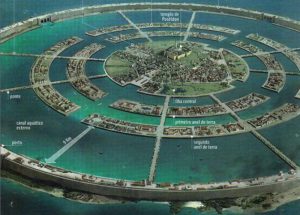
In the 4th century BC the Greek philosopher Plato wrote a series of dialogues which would demonstrate the virtues of his ideal form of government, “The Republic”. These dialogues, works of fiction delivered in a fashion that the modern day would call a mockumentary (fictional accounts delivered with the same tone of a real event), were simply meant to portray Plato’s ideology in action. And in the process of doing this, Plato pitted his ideal government, an “Ancient Athens”, in contention with an overwhelming adversary – a massive naval power known as Atlantis.
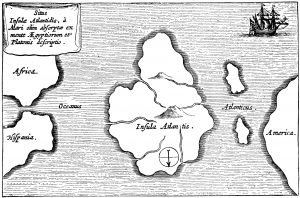
This was always understood to be a fictionalized account in his day. The events portrayed showed Athens operating in a way it hadn’t operated before, were from an era before the invention of the written word, and involved a place no one else had ever mentioned. Though some have theorized Plato may have taken inspiration from city-states that may have been destroyed by natural disaster, no one has ever found anything that actually called itself “Atlantis” or existed where he said it did. In fact, despite every effort taken to find the origins of Plato’s story, all research conducted by honest actors has come to the same conclusion that was known for centuries: he made it up.
And this isn’t an outrageous concept. Writers create fictional enemies and nations all the time to oppose their heroes and they certainly write about something that embodies their ideology. Some examples go so far as to be almost wholly about this ideology, just as Plato’s was. Though these examples can sometimes be subtle enough that people don’t immediately notice, others are blunt about their purpose. L Ron Hubbard’s Battlefield Earth made a point to call the leaders of the evil alien invaders the “Psychlo Catrists” – who used evil medical procedures to control their enemies. And Robert Heinlein wrote Starship Troopers specifically to demonstrate the virtues of a jingoistic, xenophobic, militant state run by people who’d be just fine nuking an enemy – only to eventually have his work adapted by someone who held the complete opposite beliefs.

But where as those are held firmly in the realm of fiction (…though L Ron sold some people on some other things), Atlantis somehow entered the domain of “plausible”. This wasn’t the case for a very long time, it was just kept in fiction for narrative purposes because it worked so damn well to talk about the fall of nations due to hubris. Hell, the idea of a civilization being consumed by the seas seems no more appropriate than today if you think about it. But the idea that it was a real place wasn’t really a common idea until around the 19th century. And that belief in its historicity all started because people in the 1800s really didn’t understand how ancient civilizations worked.
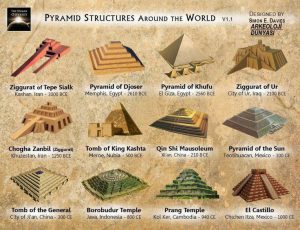
Though Egypt had always been known of, most European interactions with the region had been rooted in religious studies to confirm their connection with the bible. It wasn’t until the late 1700s and the early 1800s, particularly after Napoleon invaded the region, that Europe really started to take Egyptology seriously and began to realize how little they knew of the region. The language, religion, and history of this relatively close kingdom were almost complete mysteries to modern Europe and with each new discovery the place became even more mystical to them. This lead to a trend of eager European collectors raiding the region for relics and artifacts to be used as status symbols as they tried to piece together what this mysterious land was all about. And one thing, in particular, baffled all of them.

Early in the study of the pyramids, the very ability to construct such tremendous objects seemed next to impossible. Even with the advent of steam power and other technology, the people studying them felt that they couldn’t achieve these great structures. Yet there they were, thousands of years old, and put together with such precision with such gigantic blocks that no one could imagine how they would be put together. The blocks were just too heavy, too well fitted, and the pyramids were situated with such mathematical precision. Every detail of them seemed beyond a more primitive civilization – so clearly they couldn’t have been that primitive or they had… outside help.
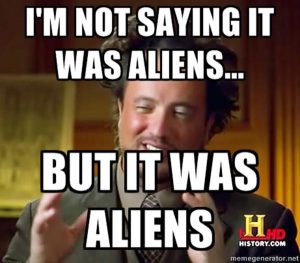
This impression was never actually true to begin with. The reason it was assumed back then was because the people of the 1800s were trying to think of how they would do it with their modern techniques. These techniques, developed for modern materials with modern tools, wouldn’t be applicable. So the assumption was based entirely in not being able to think outside of their perspectives and that assumption stuck. To this day people will insist that we can’t build the pyramids with accuracy despite the fact it’s not true. In fact, no only do we have the technology to do it today, but studies have found that several of the questions people had in the past were actually answered on the walls.
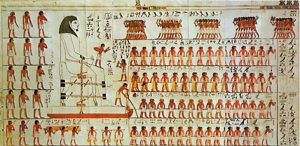
But this left open a mystery about the ancient world and it got bigger as European powers continued to explore all around. The pyramids in Egypt weren’t unique – they weren’t even the biggest. The Spanish had encountered multiple pyramids during their conquest of the Americas, and as western cultures started to question the construction of the Egyptian pyramids they also began to ask the same of the ones in Mesoamerica. Furthermore, just why would two civilizations on opposite ends of a vast ocean build the same structures? Yes, it could easily be that it was because the pyramid is the easiest shape to build tall with primitive materials, but that just wasn’t spectacular enough. So, come the late 1800s, someone came forward with what he thought to be the answer: all of the pyramid builders were descended from Atlantis!
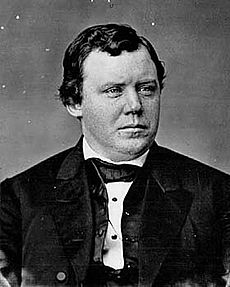
In 1882 Ignatius L. Donnelly, a US politician, wrote a book called Atlantis: The Antediluvian World. Donnelly, also an amateur scientist, believed that the story of Plato, the similarities between different cultures around the Atlantic, and the story of the great flood in the bible all pointed at the idea there was once a civilization that existed at the center of it all. According to Donnelly, Atlantis had been destroyed in the deluge and their descendants had created all of the ancient civilizations. And, also according to Donnelly and several other writers of the late 1800s, this perfectly explained the reason why so many ancient civilizations had similar stories and built pyramids.
It would have ended there, but come the 1970s, as the New Age movement got rolling, there was a sudden interest in Atlantis again as it became tied to the idea that people of ancient times knew far more than we do today. A quick search around the internet for videos on Atlantis will show you some pretty fantastic ideas on just what happened to Atlantis and why – including some versions involving Martians (I shit you not). But with the book having been made in the 1880s and the New Age movement starting in the 1970s, what possibly connected the two? Well, for that we need look no further than Edgar Cayce.

Edgar Cayce, a Christian mystic known to have “visions”, is cited by many to be the source of most of the beliefs of the New Age movement today. Born only a few years before Donnelly wrote his book, Cayce eventually went on to have visions of ancient civilizations which, “coincidentally”, reflected the descriptions found in Donnelly’s book. From there on people assumed that Cayce’s visions and Donnelly’s book somehow validated each other and other works on the subject. After all, certainly, one of them could be crazy or lying, but both of them? That could never happen. And, before long, as the concept was picked up by fiction authors such as myself and other, much more successful, creators…
The idea of Atlantis just became something people believed.
(I write novels and dabble in screenplays. Someday, maybe someone will take something I wrote too seriously. Maybe it’ll even be one of my tweets! Hopefully, it doesn’t happen for another 2000 years…)


